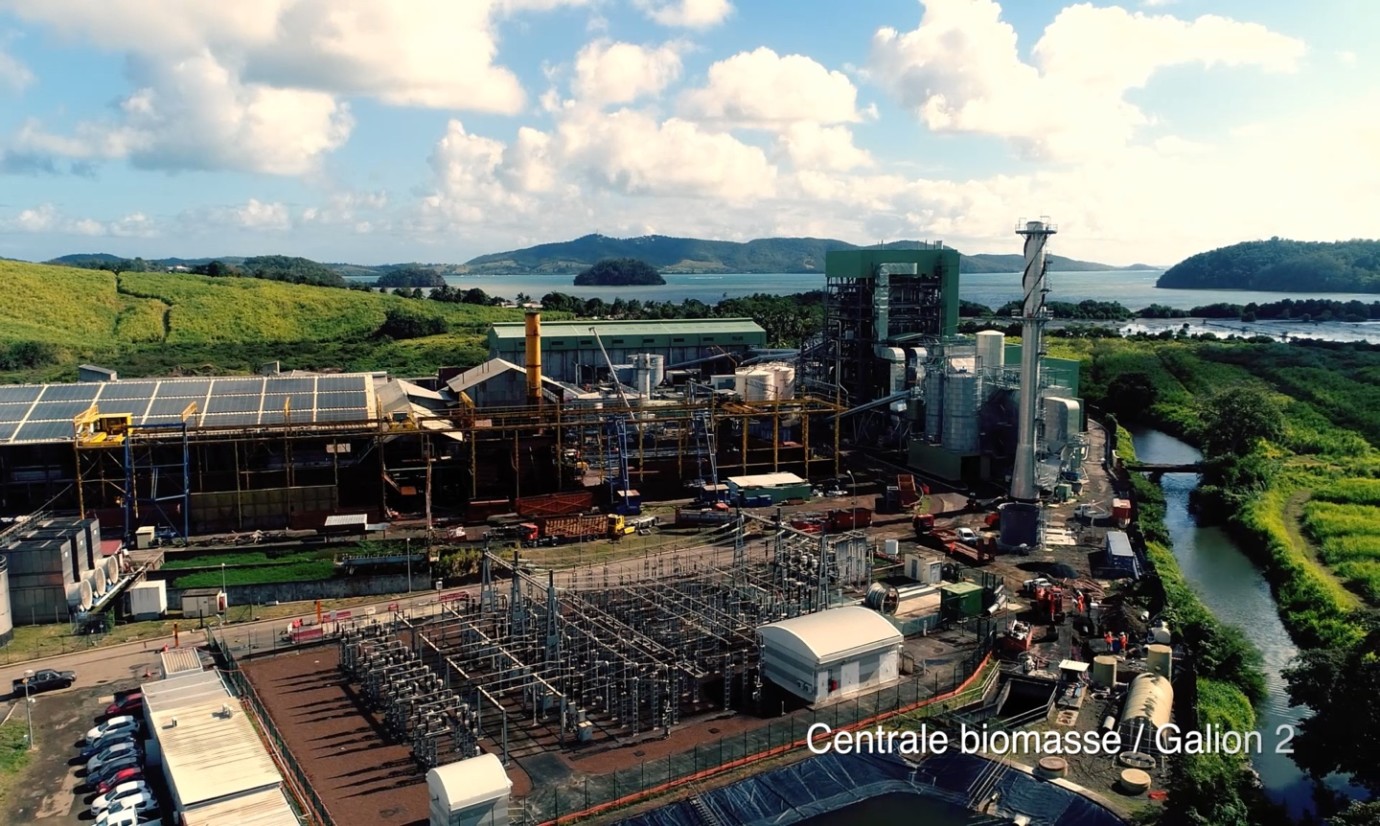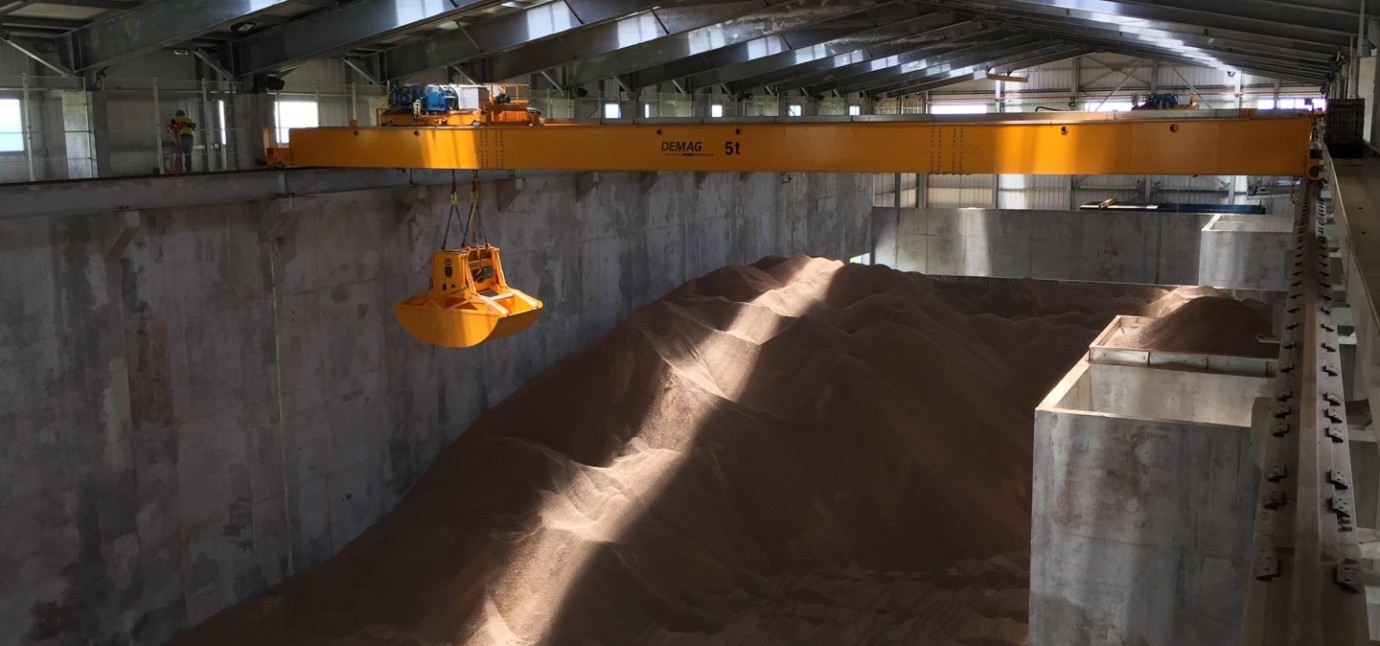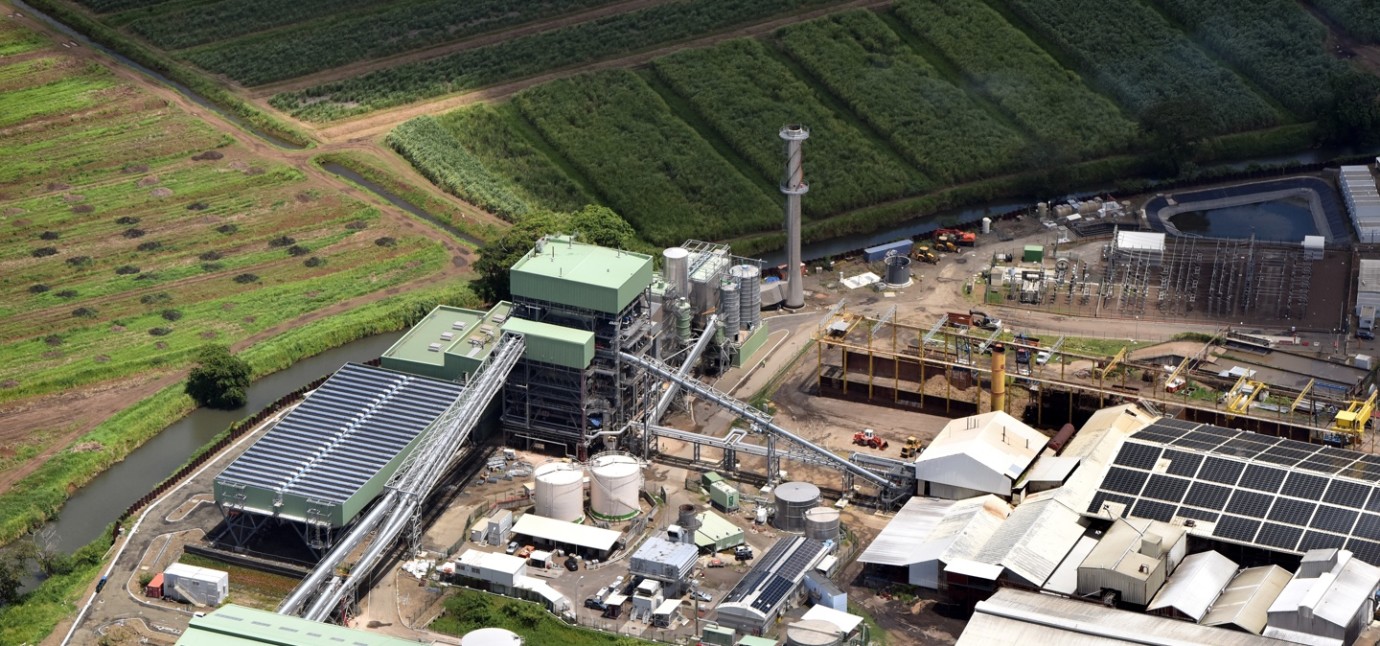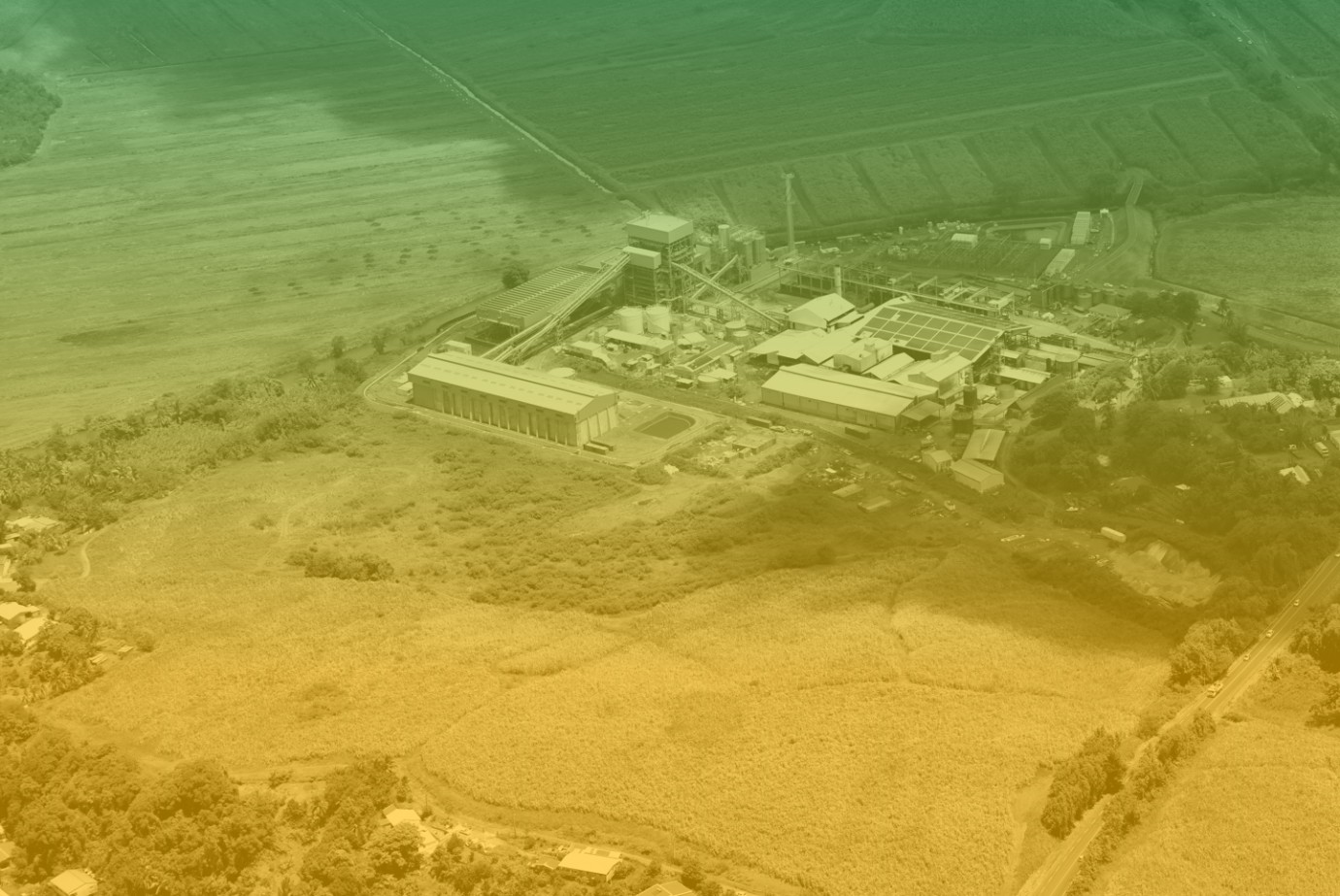Our Galion 2 biomass power plant marks a new stage in the energy transition of Overseas France’s departments and territories. With its installed capacity of 40 MW and 100% renewable energy production, this one plant increases Martinique’s renewable electricity production by a factor of three, from 7% to 22%.
Better yet, it is powered by a basic energy source: unlike solar and wind power, which are intermittent energies because they depend on wind or sunshine, Galion 2 provides constant, predictable energy that can guarantee a stable electricity supply. It does not burn coal; instead, it burns bagasse supplied by a neighbouring sugar refinery, or other local biomasses and wood chips from the United States. Galion 2 is the first power plant in Overseas France to operate using a 100% renewable energy model that significantly reduces its carbon footprint. All this thanks to biomass.

Biomass, a 100% renewable energy
Plant biomass is the name given to everything that can be taken or used from the growing of plants: forestry by-products, agricultural production residues, etc. This is of major benefit in the fight against climate change because the energy is produced through photosynthesis: the quantity of CO₂ emitted during combustion is reabsorbed by the growth of the next generation of the plant. Consequently, biomass — like the wind or the sun — is renewable.
Photosynthesis is the name given to the chemical process through which the plant, under the sun’s action, produces organic matter by absorbing CO₂ (carbon dioxide) and releasing oxygen (O₂) into the atmosphere.
Producing maximum energy from the local biomass available
The culmination of Albioma’s expertise in the recycling of sugar industry waste, Galion 2 utilises local biomass sources with no conflict of resource use whenever possible.
This is particularly the case with bagasse, the residue from the sugar cane milling process. It can be used in the boilers and has a heat capacity (the heat generated by burning it is great enough to be used) much higher than many other fuels widely used in the industry. Moreover, as an agricultural residue, its use as a fuel is a very eco-friendly solution. The annual sugar cane growth cycle renews the volumes of bagasse available every year.
Our story
At the end of the 1980s, a Réunion Island sugar refiner contacted us to replace its obsolete steam boilers. By maximising the energy performance of its steam boilers, bagasse — which the sugar industry had used to produce the heat needed in its sugar production process — could now be used to produce electricity for the island.
“The sugar refiners already used bagasse to produce the steam needed in their production process. With our power plants, we have safeguarded the sugar industry by continuing to provide steam for sugar production but also produce electricity for feeding into the EDF mains network.”

Albioma Executive Vice-President, Development and New Professions
Going further with this approach, we see our power plants as an opportunity to grow and structure local biomass production sources. This is what we are studying with the use of some of the sugar-cane straw that previously was left entirely to waste in the fields, but also with green waste, pruning residue, etc.
40 employees
This is the number of jobs created directly for the Galion 2 biomass power plant, which helps to ensure the sustainability of the agricultural, economic, industrial and social structure of Martinique.

Producing year-round renewable energy
Our electricity business works in symbiosis with the territory and the sugar industry. The sugar refinery provides us with bagasse from the milling of sugar cane and, in return, we supply it with heat (in the form of steam) and electricity.
When the sugar campaign comes to an end, we work with other types of plant biomasses so that we can continue to produce stable, renewable energy all year round. This is what is special about Galion 2, the first 100% bagasse/biomass power plant in Overseas France.
For this, we use wood granules imported from the nearby United States to supplement the local biomass fuel. These granules consist of forestry timber residue that is finely crushed and then compressed to increase its density and so optimise its transport and storage. They are produced from sustainably managed forests and of certified quality.

Producing electricity while minimising the environmental impact
There is a boiler at the heart of all our thermal power plants. It uses bagasse or other fuels to heat the water and transform it into superheated steam. This water is pressurised and then released into a turbine whose rotation drives an alternator to produce electricity.
Albioma minimises the atmospheric releases from this combustion by investing in the most efficient systems available for filtering smoke and fine particles.
At the Galion 2 biomass power plant, we have installed a three-stage filtration system: a mechanical dust extractor, an electrostatic one and a bag filter. This investment enables us to divide the sugar refinery’s initial emissions by 100.
“We have implemented the best technologies available for processing fine particles. Before our facility was built, the sugar refinery produced more than 1,000 mg of particles per normal cubic metre of smoke; Galion 2 produces between 5 and 10 mg.”

Albioma Galion 2 Director
Towards increasingly green energy production
As part of the energy transition, we work hard to use alternative solutions that minimise our environmental impact. These solutions are based on local and imported biomass fuels, like the model in place at Galion 2.
This launch is part of a more general plan: our desire to maximise the use of biomass in place of coal, with the target of achieving 80% renewable energy in our total production by 2023. Consequently, we continue to play an essential role in providing isolated regions with electricity, furthering the transition towards a world with energy that is more renewable while also structuring and ensuring the sustainability of local agricultural sources.

